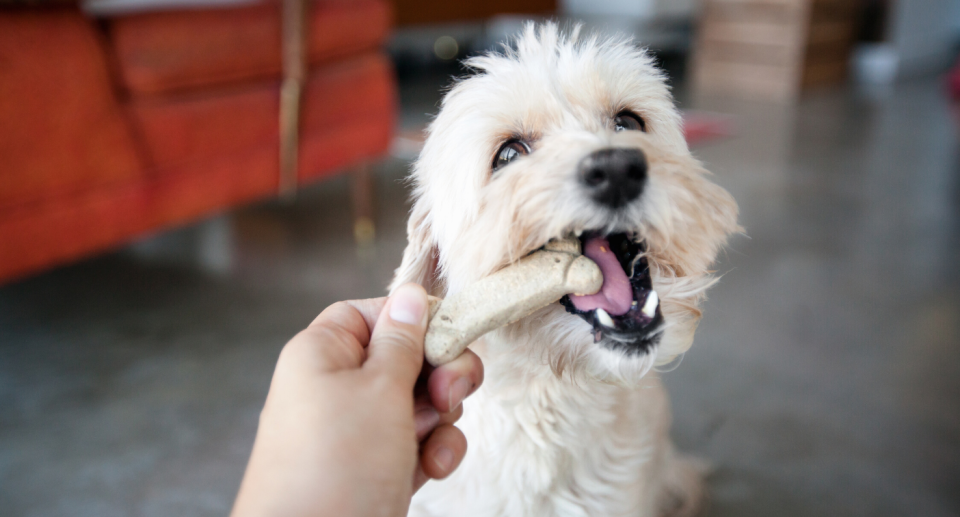COVID-19 and pets: Checklist of everything you need to keep them safe
Looking for more of the best deals, latest celebrity news and hottest trends? Sign up for Yahoo Lifestyle Canada’s newsletter!
Yahoo Lifestyle Canada is committed to finding you the best products at the best prices. We may receive a share from purchases made via links on this page. Pricing and availability are subject to change.
While the Centers for Diseases and Prevention (CDC) confirms there is no evidence that animals, including pets, can spread COVID-19, Canadians are wondering how to keep their furry companions healthy and well-taken care of during periods of social distancing.
Experts advise continuing to practice good pet hygiene with extra caution to keep your pet(s) and yourself healthy, especially when it comes to everyday behaviours and routines, such as going out for regular walks and making appointments to a veterinarian if you have questions about your pet’s health.
Whether you are playing with, feeding, or cleaning up after your pet, it is important to wash your hands before and after care to help reduce the risk of getting sick from germs pets naturally can carry. In addition to frequent hand washing, pet hygiene is placed to help prevent the spread of germs between your pets and people.
“Keep pets and their supplies out of the kitchen, and disinfect pet habitats and supplies outside the house when possible. Never clean supplies in the kitchen sink, food preparation areas, or the bathroom sink,” reads a statement from the CDC website.

In addition to other prevention measures, according to the CDC, people with COVID-19 who are identified by public health officials as requiring home care and isolation are advised to limit interaction with pets. Although there have been zero reports of pets or other animals becoming sick with the infection, this ensures you and your animals remain healthy.
“Specifically, while these people are symptomatic, they should maintain separation from pets as they would with other household members, and avoid direct contact with pets, including petting, snuggling, being kissed or licked, and sharing food. Service animals should be permitted to remain with their handlers.”
To prepare your pet(s) for any type of routine change or emergency, when possible, a household member should be designated to care for animals in the home with the latest information about your pet(s), a plan in place and essential resources.
Preparedness checklist:
Make sure pet(s) wear collars and tags with up-to-date contact information and other identification.
Microchip your pet(s) – this is one of the best ways to ensure that you and your pet are reunited in the case of unexpected separation. Always be sure to register the microchip with the manufacturer and keep your contact information up to date with the microchip company.
Keep a leash or harness and/or carrier near the exit.
Make sure you have the proper equipment for pets to ride in the car (carriers, harnesses, pet seatbelts).
Veterinary records, including a record of vaccination for rabies and other diseases, prescription medications, and medical history for each pet.
Contact information (cell phone, work phone, home phone) of the owner and close relative or friends.
Locate a veterinarian or animal hospital in the area where you may be seeking temporary shelter and add the veterinarian’s contact information to your emergency kit.
What you need to have:
A pet carrier for each of pet (write your pet’s name, your name, and contact information on each carrier)
Let us know what you think by commenting below and tweeting @YahooStyleCA! Follow us on Twitter and Instagram and sign up for our newsletter.


